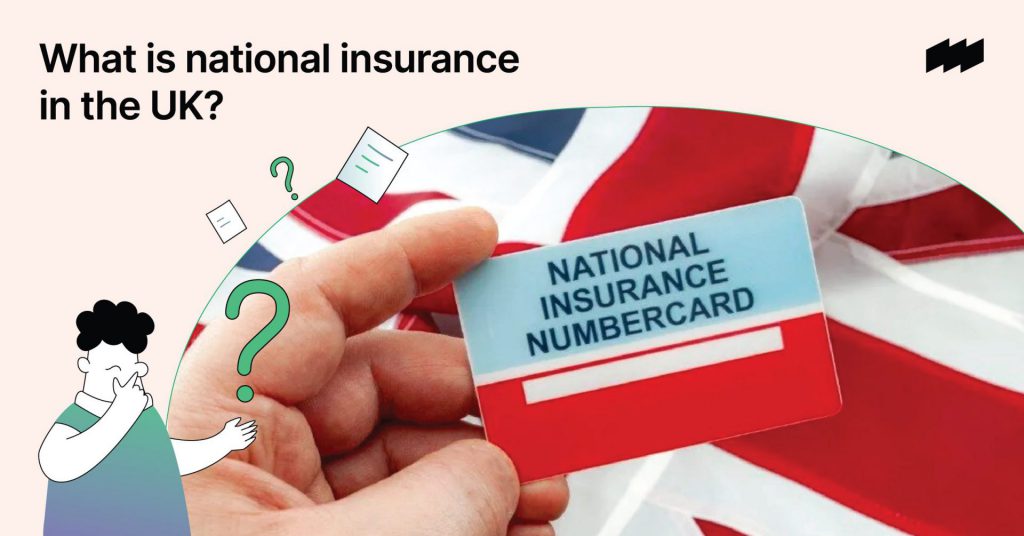The tapestry of the UK’s welfare system is woven with myriad threads, and national insurance stands out as one of its most significant strands. For many, it represents a mere deduction from their paycheck, but its implications run deep, touching various facets of public welfare and individual benefits. Whether you’re a UK native, a newcomer, or a global entrepreneur eyeing the UK market, understanding this system is paramount. Let’s embark on this enlightening journey through the world of national insurance, shedding light on its intricacies and its profound impact on society.
What is national insurance?
Picture the government, akin to a wise old sage, ensuring the welfare of its citizens. This responsibility is partly fulfilled through the concept of national insurance. At its core, national insurance serves as a mechanism to fund essential public services. We’re talking about the National Health Service, the state pension, and unemployment benefits.
While many view taxes and contributions as mere obligations, it’s worth seeing national insurance as your investment in the nation’s well-being. This form of contribution aids both the present and the future, helping countless people access vital services and a financial safety net.
What is a national insurance number?
Imagine a unique ID, like your fingerprint, but in a sequence of numbers and letters. This descriptor is the national insurance number, an essential part of your financial identity in the UK. It’s crucial for various activities, from starting a job to claiming benefits.
But it’s not just about identification. This sequence carries your contribution history, ensuring you’re accredited for what you pay. Think of it as a ledger, tallying your contributions and ensuring you reap the rewards promptly.
How to get a national insurance number
Entering the UK market? It’s akin to joining a new club; your membership card is your national insurance number. Those born in the UK usually get it automatically at 16. For newcomers, however, the process is slightly different. It begins with a call to the dedicated helpline. After this, an evidence-of-identity interview might be required. Submit essential documents like your passport or residence permit. And voilà, after some administrative magic, your number arrives by post or email.
Where can I find my national insurance number?
Misplaced your number? Don’t fret! There are multiple ways to rediscover this alphanumeric code. It’s often found on official documents, like the P60 (end-of-year tax summary) or payslips. If paperwork isn’t your forte, your tax account online might be your savior. Once logged in, it’s just a few clicks away. Remember, while sharing this number with employers or HMRC is okay, always be wary of scams. Guard it like a secret treasure.
What is a national insurance tax?
When discussing national insurance, a common misconception is that it’s a tax. To clarify, it isn’t a tax in the traditional sense but a contribution. It’s a dedicated pool of funds earmarked to support specific services. However, like taxes, it is mandatory. Employers deduct it from wages, and self-employed folks make payments based on their profits. The primary beneficiaries? The elderly, the sick, and those without employment, ensuring they’re not left to chance’s whims.
How is the national insurance tax calculated?
The math behind this contribution might seem perplexing, but with a clear head, it’s comprehensible. For employees, it’s a percentage of your salary, with specific thresholds determining the exact rate. On the other hand, self-employed individuals might pay two types: a flat weekly rate and a percentage of net annual profits.
These percentages and thresholds evolve, with government announcements typically outlining any changes. It’s not static, much like our dynamic economy. So, a bit of vigilance and maybe a good accountant can ensure you’re on the right track.
When do I start paying national insurance?
One doesn’t start paying national insurance the moment they earn their first penny. Like reaching a milestone age, there’s a threshold income. Once your earnings surpass this, contributions kick in. For most, it begins when they start working and earning above a specified limit.
But age plays a part too. Typically, payments start at 16 and go on until you reach the state pension age. A word of advice: always ensure you’re paying the right amount. Over or under-contribution can lead to complications down the road.
What happens if I don’t pay national insurance?
Choosing to skip these contributions? It’s like refusing to place your bet on the roulette table. There might be immediate consequences, like penalties or interest. In the long run, you could miss out on qualifying for certain benefits, especially the state pension.
Life happens. Sometimes, gaps in payment occur. In such cases, you have the chance to make voluntary contributions. It’s an opportunity to fill in any gaps, ensuring your record stays robust and you remain entitled to benefits.
At first glance, diving into the world of national insurance might seem like plunging into a deep ocean of information. Yet, as you swim through with the proper guidance and knowledge, you begin to see the vast benefits and the safety it provides. We’ve delved into the various facets of this system, from its very definition to its tangible benefits. Each component is integral, ensuring the smooth functioning of a vast welfare system. With every contribution made, you’re ensuring your future and actively participating in improving countless lives in the UK. It’s a commitment, a promise, and an investment all rolled into one.
Set up and manage your UK company with Workhy
Considering setting up shop in the UK? Familiarizing yourself with company formation services in the UK is the best way to get what you need, and Workhy is here to simplify the process for entrepreneurs across the globe. We’ve got you covered with services ranging from company formation, tax filings, and bookkeeping to VAT and EORI applications. Plus, there’s no need to set foot on British soil! Experience seamless assistance with registered addresses and online bank account openings as well. Dive in and let Workhy be your guiding hand!

